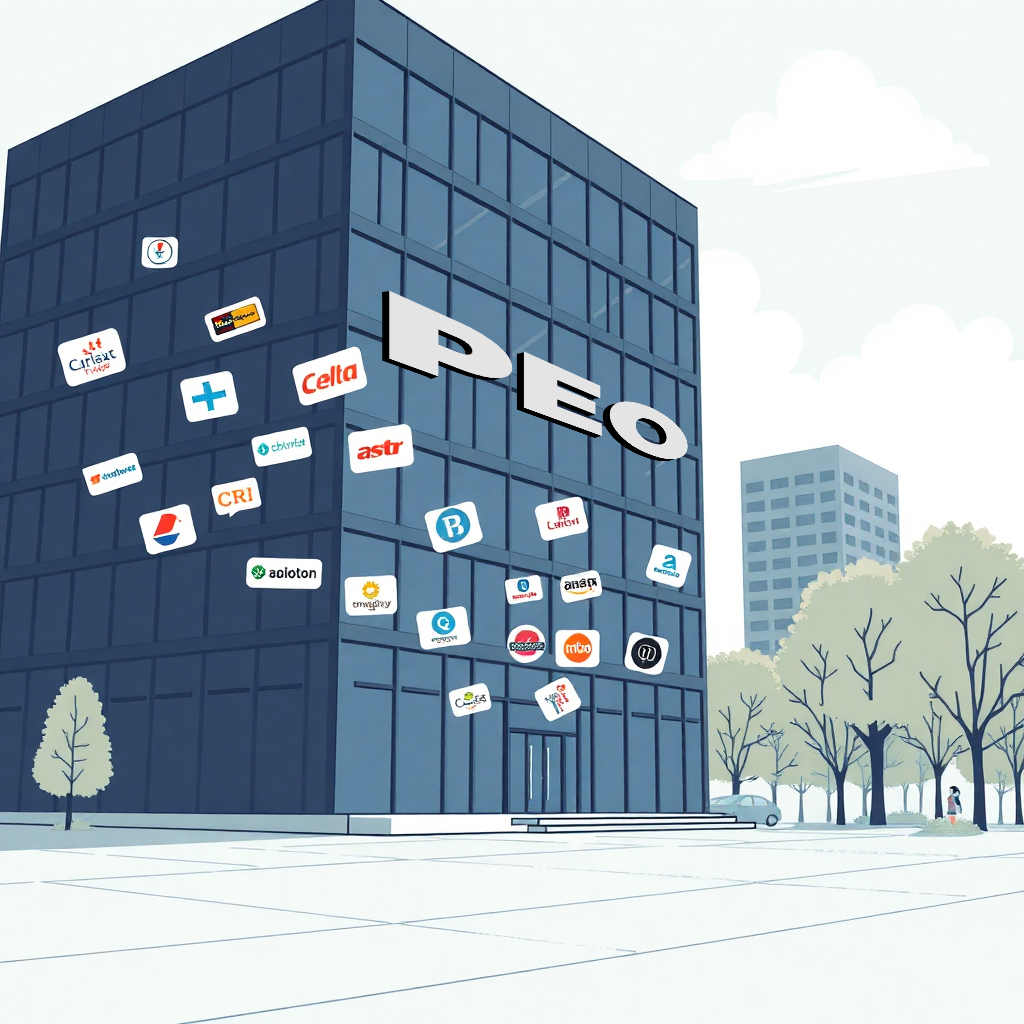

As businesses grow and scale, managing tasks like human resources, payroll, and compliance becomes more complex. A business model that began in the 1960s as “employee leasing” but has today evolved into the Professional Employer Organization (PEO) can be helpful for companies to navigate these complexities. A PEO is a company that provides comprehensive HR solutions for small and medium-sized businesses by handling payroll, employee benefits, tax compliance, and other HR-related tasks.
Businesses that partner with a PEO benefit from shared responsibilities, streamlined operations, and cost savings, allowing owners to focus on core business activities. But is a PEO right for your business? To answer that, let’s break down the pros and cons of PEOs and how they compare to traditional HR solutions.
When small businesses decide to enhance their HR practices, they typically face two choices: building a significant in-house HR department or partnering with a PEO to handle aspects such as benefits, payroll, and compliance. Both approaches have their advantages and disadvantages, and the decision largely depends on the needs of the business.
Traditional HR involves hiring a team that directly handles all aspects of human resources within the company. Hiring HR professionals can be costly, and managing compliance, tax obligations, and employee benefits often demands extensive time and effort. For small businesses, these tasks can be overwhelming, especially if they lack HR expertise.
In contrast, PEOs provide a co-employment model, where the PEO becomes the employer of record for tax purposes. The PEO handles payroll, benefits, and compliance, while the business retains control over daily management and operations.
The advantage is that PEOs can offer small businesses access to resources, such as comprehensive benefits packages, compliance support, and HR expertise, without the need to build an in-house team. A PEO's shared services model can also reduce costs by spreading overhead across multiple clients.
For businesses that are still growing, opting for a PEO is often more cost-effective than hiring an internal HR team. However, companies that prefer maintaining direct control over all HR functions may see traditional HR as a better option.
Handling payroll and tax compliance is a daunting task for any small business, especially as employment laws and tax regulations become increasingly complex. Payroll errors can result in penalties, legal issues, and unhappy employees, which can impact morale and productivity. PEOs help to mitigate these risks by offering specialized expertise in payroll management and tax compliance.
PEOs have sophisticated systems in place to ensure payroll is processed accurately and on time through automation. This reduces the risk of human error, missed deadlines, and compliance breaches. Furthermore, they ensure that all deductions such as taxes, retirement contributions, and benefits are correctly calculated and withheld.
PEOs also stay up to date with federal, state, and local tax laws, which can be difficult for small business owners to track. As tax laws evolve, PEOs adapt their services to ensure compliance, reducing the risk of penalties for late or incorrect filings.
PEOs handle the distribution of W-2s and other tax documents, taking one more task off the plate of business owners. Additionally, a PEO can help businesses manage workers’ compensation insurance and unemployment claims, reducing administrative headaches and potential liabilities.
For businesses operating across state lines, the PEO's knowledge of multi-state payroll compliance is invaluable. The expertise offered by a PEO in payroll and tax compliance alone can save small businesses significant time and money, allowing them to focus on more strategic aspects of growth.
PEOs do more than just handle HR functions, they can play a pivotal role in the growth and scalability of small businesses. Here are five key benefits that PEOs can offer small businesses:
By pooling their clients together, PEOs can negotiate better rates and offer more diverse benefits options. This helps to level the playing field for small businesses by giving them access to benefits packages and pricing similar to those offered by larger corporations. This includes health insurance, dental and vision coverage, retirement plans, and more. Accessing the benefits and bargaining leverage of large companies is a significant reason that many firms choose to join a PEO.
Keeping up with ever-changing labor laws and regulations is time-consuming and risky, and non-compliance can lead to costly fines and legal issues. PEOs help businesses navigate these regulations and ensure compliance with laws at all levels. They provide expertise on issues such as overtime rules, hiring practices, and workplace safety, minimizing the risk of any violations.
Running a small business often means wearing many hats. Partnering with a PEO allows business owners to offload administrative tasks related to HR, payroll, benefits, and compliance to focus on strategic activities such as marketing, product development, and customer service. By handling back-office HR tasks, PEOs allow businesses to focus on growth.
PEOs can often provide small businesses with access to tools and strategies that enhance their recruitment processes. Whether it's crafting job descriptions, streamlining onboarding, or offering attractive benefits packages, a PEO can help businesses become more competitive in the job market.
Furthermore, having a PEO onboard improves employee retention by offering better benefits and fostering a positive workplace culture through compliant HR policies.
Choosing between a PEO and traditional HR depends on your business's specific needs and growth stage. If you're a small or growing business looking to streamline HR functions, reduce administrative burden, and improve compliance without the overhead of an in-house HR team, a PEO may be the right solution for you. In our following articles, we will further explain aspects of PEO agreements that may not be a great fit for small businesses.
PEOs offer cost-effective services, access to competitive benefits, and support in navigating complex regulations, so you can focus on your business's core mission. On the other hand, there are often times where a PEO is not a good fit, as will be described in the following article. Ultimately, the decision comes down to your business's goals, resources, and priorities.